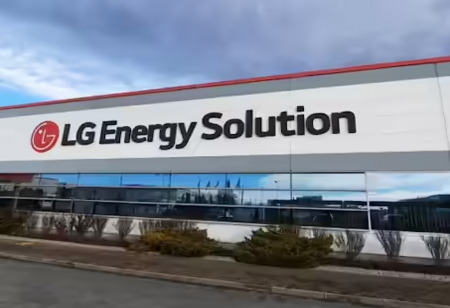
LG Energy Solution Signs $4.3 Billion Battery Supply Deal


South Korea-based LG Energy Solution announced that it had signed a $4.3 billion contract for supplying batteries to a major corporation, without naming the customer.
The effective date of contract — receipt of orders, which began this week, is expected to conclude at the end of July, 2030.
During this period, the counterparty will not be disclosed to maintain business confidentiality, the company’s filing with the Korea Exchange showed this week. Reports indicated that Tesla was the counterparty.
Earlier this week, Tesla CEO Elon Musk confirmed that the EV maker was behind a previously undisclosed $16.5 billion chip contract with South Korea’s Samsung Electronics.
LG Energy said in its filing that details of the agreement such as the deal amount were subject to change and the contract period could be extended by up to seven years.
Also Read: Adaptability Lessons: Why Southeast Asia's Heat Can't Beat Mars Wrigley
The value of the disclosed contract eclipses the company’s 5.6 trillion Korean won ($4.05 billion) revenue for the second quarter of this year.
“Investors are advised to carefully consider the possibility of changes or termination of the contract when making investment decisions,” the company cautioned. It’s shares were trading 0.26 percent lower.
The filing did not clarify whether the lithium iron phosphate batteries would be used in vehicles or energy storage systems. Its major battery customers include American electric-vehicle makers Tesla and General Motors.
The company has been expanding its manufacturing in the US, with its first North American ESS battery manufacturing hub, located in Michigan, coming online in the second quarter of this year. The company is also constructing a plant in Arizona that will produce lithium iron phosphate batteries.
Also Read: Tadashi Yanai: Making Uniqlo the World's Go-to Casual Wear Brand
LFP batteries have long been undervalued in the EV sector due to their lower energy density compared to nickel-based alternatives. However, their advantages—lower raw material costs (iron and phosphate are abundant and cheaper than cobalt or nickel), superior thermal stability, and longer cycle life—are becoming impossible to ignore. For automakers like Tesla, which prioritizes cost efficiency and safety, LFP is a natural fit for both vehicles and energy storage systems (ESS).
LGES's decision to lock in a multi-year LFP supply deal reflects its confidence in the chemistry's growing dominance. By securing long-term contracts, LGES mitigates the risk of price volatility in nickel and lithium markets while aligning with global decarbonization policies, such as the U.S. Inflation Reduction Act (IRA), which incentivizes localized production. The company's existing $1.4 billion investment in its Michigan plant—expanding to 30 GWh of ESS capacity—positions it to meet surging demand without relying on Chinese supply chains, a critical edge as tariffs and geopolitical tensions complicate global trade.
The LFP deal underscores a broader industry trend: the consolidation of supply chains around cost-effective, resilient technologies. For LGES, this agreement reinforces its role as a key player in the US energy transition, where it currently faces minimal competition in the ESS market. The company's vertical integration strategy—controlling everything from raw material sourcing to manufacturing—further enhances its margins and ability to scale.

